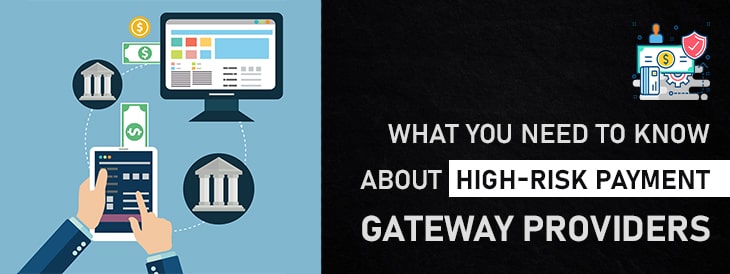What You Need to Know About High-Risk Payment Gateway Providers
What You Need to Know About High-Risk Payment Gateway Providers

An Introduction to Payment Gateways for High-Risk Merchants
Operating as a high-risk merchant presents unique challenges, especially when it comes to processing payments. High-risk payment gateway providers play a pivotal role in addressing these challenges, offering solutions tailored to industries that face greater scrutiny from financial institutions. These gateways are designed to handle the complexities associated with high-risk sectors, such as higher chargeback rates and increased fraud potential.
One of the primary functions of high-risk payment gateways is to provide secure and reliable payment processing services. They employ advanced security measures and fraud detection tools to protect both the merchant and the customer. This includes features like multi-layered authentication, encryption technologies, and real-time monitoring to identify and mitigate fraudulent activities.
In addition to security, high-risk payment gateway providers offer flexible payment options to cater to the diverse needs of high-risk businesses. This can include support for multiple currencies, various payment methods, and seamless integration with different e-commerce platforms. Such flexibility is crucial for businesses operating on a global scale or those that have a varied customer base.
Another significant aspect is the ability to manage and reduce chargebacks. High-risk payment gateways often come equipped with chargeback mitigation tools that help merchants contest and resolve disputes more effectively. This not only helps in maintaining a healthy cash flow but also improves the overall financial stability of the business.
Moreover, high-risk payment gateways provide detailed analytics and reporting features. These tools allow merchants to gain insights into their transaction patterns, identify potential risks, and make informed decisions to optimize their payment processing strategies. By leveraging these capabilities, high-risk merchants can navigate the complexities of their industry more effectively and maintain a competitive edge.
Some Related Blogs
- How High-Risk Payment Processors Minimize Chargebacks
- Comparing Offshore and Domestic High-Risk Merchant Accounts
- Avoiding Common Pitfalls in High-Risk Payment Processing
- How to Choose the Right High-Risk Payment Processor for Your Business Needs
Traits of Businesses Deemed High-Risk
Certain industries carry more financial risk, leading them to be classified as high-risk by banks and financial institutions. Examples include online gambling, adult entertainment, travel agencies, and businesses involved in the sale of e-cigarettes or firearms. These sectors face potential regulatory issues, higher chargeback rates, and increased susceptibility to fraud, contributing to their high-risk classification.
Factors leading to this designation include a history of high chargeback ratios, poor credit history, or operating in regions with unstable financial or political climates. Businesses that experience volatile sales patterns or are more susceptible to fraud also fall into this category. As a result, they often need specialized payment solutions to manage these challenges and ensure smooth financial operations.
High-risk industries often deal with greater scrutiny from financial institutions due to the nature of their business activities. The potential for legal complications, along with higher instances of refund requests and fraudulent transactions, makes them less appealing to traditional payment processors. This makes securing reliable payment processing solutions a critical concern for these businesses.
Due to these challenges, high-risk businesses usually face higher fees and more stringent terms when they do find a payment gateway provider willing to work with them. Providers may impose higher transaction fees and require additional security measures to mitigate risks. This can significantly impact the profitability and operational efficiency of high-risk merchants.
Additionally, these businesses may have to deal with limited access to certain financial services and stricter compliance checks. These conditions necessitate the use of high-risk payment gateway providers that offer tailored solutions designed to address the unique risks and needs of high-risk industries.
Obstacles High-Risk Merchants Encounter
Securing payment processing solutions can be particularly difficult for high-risk merchants. Financial institutions and standard payment gateway providers often hesitate to work with these businesses due to perceived risks, making it challenging for them to find a reliable partner.
Once they do secure a payment processing solution, high-risk merchants frequently face elevated fees and more stringent terms compared to their lower-risk counterparts. These higher costs are intended to offset the increased financial risks associated with high-risk businesses. Additionally, compliance checks are often more rigorous, and access to certain financial services can be limited.
These stringent conditions can hinder the operational efficiency and profitability of high-risk merchants. The need for specialized high-risk payment gateway providers becomes apparent, as they offer the tailored solutions that standard providers cannot. However, even these specialized providers impose stricter requirements and higher fees, which can still be a financial burden.
The constant scrutiny and potential for service disruptions make it imperative for high-risk merchants to find reliable payment gateway providers that understand the unique challenges they face. Finding such providers often requires extensive research and negotiation, further complicating the process. Even after securing a partnership, high-risk merchants must continuously manage and monitor their compliance with the provider’s terms to avoid disruptions in their payment processing capabilities.
Navigating these obstacles demands a proactive approach and a thorough understanding of the high-risk payment landscape. High-risk merchants must remain vigilant in managing their payment processing needs to ensure smooth financial operations despite the inherent challenges.
The Operations of High-Risk Payment Providers
High-risk payment gateway providers function uniquely to serve the specific needs of businesses classified as high-risk. They offer specialized solutions that go beyond what standard providers can offer, ensuring that merchants have the tools necessary to handle higher fraud potential and elevated chargeback rates. These providers implement advanced security measures, including multi-layered authentication and encryption technologies, to safeguard transactions and protect sensitive data.
One key feature of high-risk payment gateways is multi-currency processing, allowing businesses to accept payments in various currencies, essential for global operations. Additionally, they offer chargeback management tools that help merchants effectively contest and resolve disputes, which is vital for maintaining a stable cash flow and financial health.
High-risk payment gateway providers also enable merchants to handle larger transaction volumes, a crucial aspect for businesses experiencing fluctuating sales patterns. Advanced analytics and reporting tools are another significant offering, providing merchants with detailed insights into their transaction data. These insights help in identifying potential risks and making informed decisions to enhance payment processing strategies.
By leveraging these specialized services, high-risk businesses can better manage the unique challenges they face. These providers not only help mitigate risks but also contribute to the overall operational efficiency and growth of high-risk merchants, allowing them to focus on their core business activities.
![]()
Email us anytime!
Email customer service 24/7 at info@binarygateways.com
![]()
Call us anytime!
Reach customer care 24/7 at (801) 761-5001
